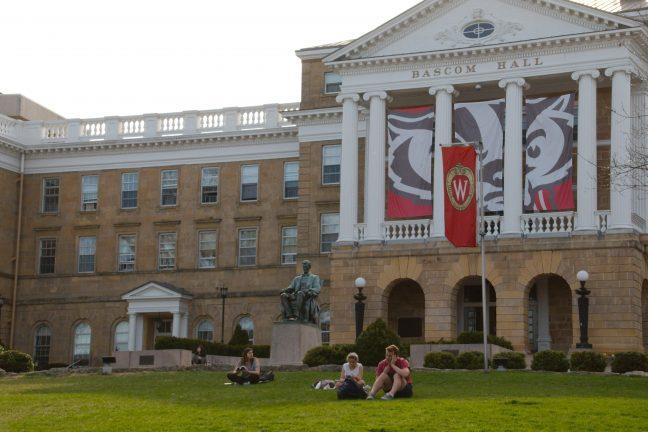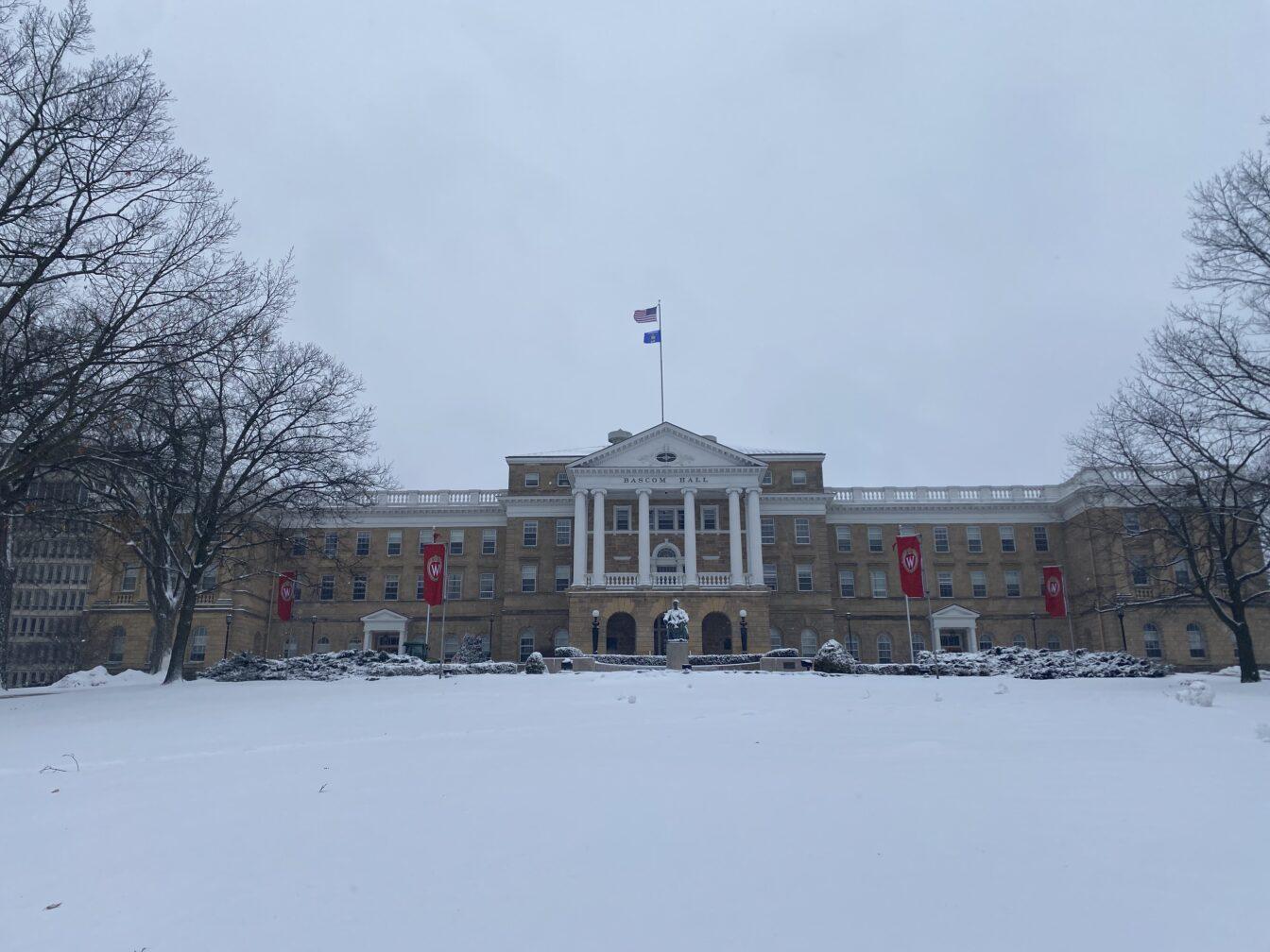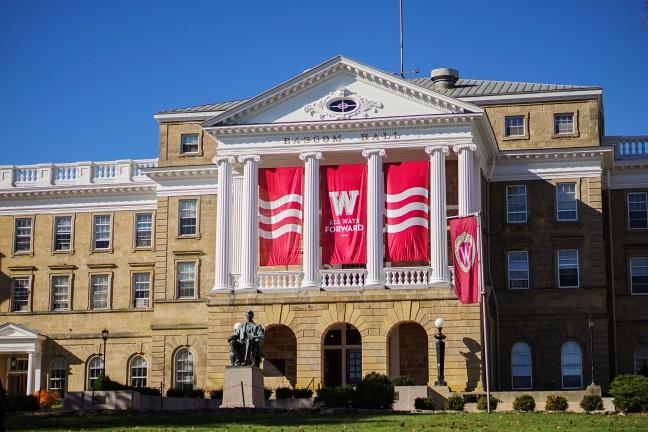As another pandemic-adjusted semester comes to a close, The Badger Herald Editorial Board recaps some of spring’s biggest stories.
Our new “normal”
After a semester and school year defined by Zoom classes, mandatory COVID testing and few if any campus activities, University of Wisconsin students are starting to see the light at the end of this seemingly endless tunnel.

April 5, the Wisconsin Department of Health Services announced everyone 16 and older was eligible for the COVID-19 vaccine. Since then, the vaccination effort has picked up across the state. More than 40% of Wisconsinites have received at least one dose of the vaccine, and nearly 30% are fully vaccinated.
According to a recent update from Chancellor Rebecca Blank, about 23,000 employees and students have received at least one dose of vaccine, either at University Health Services or from a vaccinator off campus.
This is good news for Badgers itching to return to campus life as they know it — and for students who have not yet experienced a traditional semester on the UW campus. But, a complete return to normalcy in the fall has not been promised by campus officials.
The Badger Herald Editorial Board: Spring 2021 stories to watch
The latest communication from the university, issued April 19, states “some activities on campus will change after the end of spring semester.” For this summer, that means access to campus buildings will not be managed by Badger Wellness Ambassadors and regular testing will not be required, but it is strongly encouraged to maintain a Green Badger Badge.
There has yet to be an announcement on whether the majority of classes will resume in person in the fall, if testing and face masks will be required and if time-honored campus traditions will take place. It’s safe to say Badgers shouldn’t get their hopes too high yet and should prepare for anything.
Fossil fuel divestment resolution
In February, the UW Faculty Senate passed a non-binding resolution calling on the UW Foundation, which controls a $3.3 billion endowment, to divest from fossil fuels. The resolution also called on the university to be more transparent about its stake in the fossil fuel industry and to consider more sustainable practices in their investment profile.

Abby Cima/The Badger Herald
Currently, the UW Foundation’s investment team is tasked with earning satisfactory returns on low-risk investments, but letter to the editor submissions to The Badger Herald have shown fossil fuels are a volatile industry, and given the Foundation is accountable to its shareholders, divestment is not only practical in a moral sense, but a financial one as well.
A unique component of the Faculty’s resolution is its demand that UW work with the Office of Sustainability to reduce the university’s carbon footprint beyond divestment. Additionally, as a global leader in research and higher education, UW has a strong influence worldwide, and while many institutions have already committed to divestment, it’s concerning our leadership has not yet taken this step.
Similarly, as climate change continues to be an increasing threat, it’s unethical for UW to reap any rewards by contributing to the fossil fuel industry. While the Foundation has repeatedly cited its fiduciary responsibility to its shareholders, we all have an ethical responsibility to our planet to reduce our carbon footprint however possible — and as the Faculty Senate resolution claims, the “window of opportunity to address climate change is rapidly closing.”
Wisconsin’s vaccine rollout
When the Moderna and Pfizer COVID-19 vaccines were approved back in December, nobody knew how quickly the vaccine would roll out and be widely available to the American public. Wisconsin struggled in the early stages of the vaccine rollout, ranking among the worst states in the country in terms of percentage of residents vaccinated.
Fast forward to today – the story is much different.

Wisconsin now ranks among the leaders in vaccine distribution, as 41.5% of residents have received at least one dose and 30.4% of residents have completed the vaccine series. These numbers are even greater among the 65-and-older population — 80.1% of these residents have received at least one dose, according to the Wisconsin Department of Health Services.
President Joe Biden — who initially set the goal of 100 million vaccine doses administered in his first 100 days in office — opened vaccine availability to all U.S. residents over the age of 16 on April 19. Easily surpassing Biden’s initial goal, the U.S. has administered over 200 million vaccines as of April 21, with more than half of all U.S. adults receiving at least one dose.
In addition to the impressive vaccine rollout, Wisconsin is set to receive nearly $20 billion in COVID-19 relief money, with Gov. Tony Evers announcing $2.5 billion will go toward economic relief for families, individuals and small businesses. Other key areas in the allocation include tourism, infrastructure and pandemic response efforts.
As April draws to a close, it appears a near-normal summer may be possible in a country and state ravaged by the virus for more than a year.
Derek Chauvin trial and police accountability
May 25, 2020, George Floyd, an unarmed Black man, was killed by a Minneapolis police officer. Footage shows former Officer Derek Chauvin pressed his knee on Floyd’s neck for more than seven minutes, during which Floyd repeatedly said, “I can’t breathe.”

According to the official autopsy, Floyd died as a result of cardiopulmonary arrest “complicating law enforcement subdual, restraint and neck compression.” But, the family hired a private forensics firm and proved Floyd’s death was caused by asphyxiation as a result of Chauvin’s actions, which restrained his respiratory system.
The Badger Herald Editorial Board: On elevating Black stories through ethical journalism
During the summer, following Floyd’s death and that of many other people of color, the words white supremacy, police brutality, accountability and systematic racism dominated the public sphere. Massive protests and demonstrations were not only happening in the U.S. but all around the world to support the Black Lives Matter Movement.
Amid calls for police reform, the Madison City Council established a Police Monitor and Civilian Oversight Board, a step in the right direction to hold police accountable for their actions. Fast forward to today, Chauvin was charged with three crimes — unintentional second-degree murder, third-degree murder and second-degree with manslaughter — all of which he was found guilty of.
Moving forward, this trial proved the power of activism, however this is not justice — this is accountability. Not all officers involved were put on trial, and the officers who did not oppose Chauvin’s actions should be tried for compliance with murder. Police accountability is extremely low in the U.S. and no presidential administration has properly addressed it.
We must also address the issue of double-standard policing. Police reactions to BLM protesters compared to the Jan. 6 rioters have day-and-night differences.
The Chauvin trial is a temporary win, but we still have a long way to go to eradicate systemic racism and reform the police.
Spring elections
The April 6 elections saw just over 20% voter turnout, which was especially surprising given how few seats were contested and how little was actually on the ballot. Election highlights include Jill Underly’s win for state superintendent and UW student Juliana Bennett securing the District 8 Alder position, winning nearly two-thirds of the vote over fellow student Ayomi Obuseh.

Bennett is also the first Black District 8 Alder, and after running a campaign centered on increasing representation for marginalized voices on campus and in Madison, her win is all the more notable.
Separately, many referendums on the ballot did not come to pass, including one that would make council member positions full-time and would increase their salaries. Voters also opposed changing council terms from two years to four, as well as changing the size of the council to include either more or less members. The only approved change was establishing term limits for alders of 12 consecutive years.
The Badger Herald Editorial Board endorses Juliana Bennett for Madison District 8 alder
Though Madisonians were less enthusiastic about structural changes proposed by the referendums, residents voted for the city’s most diverse Council in history, illustrating a desire for greater representation among local leadership.
Given the issues currently facing Madison — from the pandemic and a struggling local economy to racial equity and social justice — it is especially important that council members are accountable to their constituents, and representation is only the first step.
The Badger Herald Editorial Board serves to represent the voice of the editorial department, distinct from the newsroom and does not necessarily reflect the views of each staff member.













